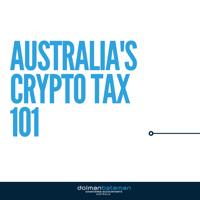In recent years, influencer marketing has become big business in Australia, with brands spending...
LCT- Luxury Car Tax

In Australia, if you're planning on buying a luxury car, you might be required to pay the Australian Taxation Office's (ATO) luxury car tax. The tax is applied to cars that are worth more than a certain threshold and is designed to discourage people from buying luxury vehicles.
The tax is levied at a rate of 33% on the value of cars above the LCT threshold. The threshold is reviewed every year and the thresholds for the 2022-2023 financial year are $84,916 for fuel efficient vehicles and $71,849 for all others.
The LCT value is made up of the retail price of the car, GST and customs duty, dealer delivery charges, warranties and any additional accessories or modifications made before delivery.
Which Cars are Subject to LCT?
Not all cars are subject to LCT. Only cars that meet certain criteria are subject to the tax. To be subject to LCT, a car must:
- Be designed to carry a load of less than two tonnes and fewer than nine passengers.
- Have a value above the LCT threshold
- Not be classified as a commercial vehicle (e.g., a ute or van)
Examples of cars that may be subject to LCT include luxury sports cars, high-end SUVs, and high-performance vehicles.
How is LCT Calculated?
The Luxury Car Tax is calculated based on the value of the car above the LCT threshold. The LCT is calculated at a rate of 33% of the amount above the threshold. For example, if the value of a car is $100,000 (including GST), and the LCT threshold is $71,849, the LCT payable would be:
LCT = 33% x ($100,000 - $71,849)
LCT = 33% x $28,151
LCT = $9,289.83
The total cost of the car (including GST and LCT) would be $109,289.83.
LCT is payable by the person or business that sells the car. However, the cost of the LCT is usually passed on to the buyer as part of the purchase price.
Exemptions and Concessions
There are some exemptions and concessions available for certain types of cars. For example, cars that are designed to carry a load of more than two tonnes or more than nine passengers are exempt from LCT. Cars that are modified for use by a person with a disability may also be exempt.
There are also concessions available for certain fuel-efficient cars. Cars that meet certain environmental criteria, such as having low carbon emissions, may qualify for a reduced LCT rate. The reduced rate is currently 7% of the amount above the LCT threshold.
There is a concession for LCT when selling a car that is less than two years old. LCT will need to be calculated on the new sale price, which can be reduced by the prior LCT paid. This blog has been prepared for the purposes of general information and guidance only. It should not be used for specific advice or used for formulating decisions under any circumstances. If you would like specific advice about your own personal circumstances, please feel free to contact us on 02 9411 5422. We can help make sure the right method is used to give you the maximum possible tax deduction associated with any of these methods.
This blog has been prepared for the purposes of general information and guidance only. It should not be used for specific advice or used for formulating decisions under any circumstances. If you would like specific advice about your own personal circumstances, please feel free to contact us on 02 9411 5422. We can help make sure the right method is used to give you the maximum possible tax deduction associated with any of these methods.



